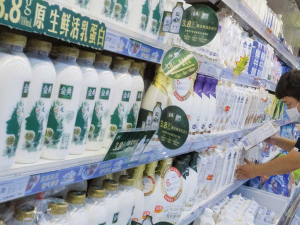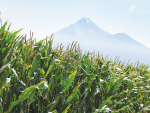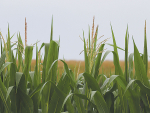The benchmark index of international food commodity prices declined in February for the eleventh consecutive month, the Food and Agriculture Organization of the United Nations (FAO) says.
The FAO Food Price Index averaged 129.8 points in February, a marginal 0.6-percent decrease from January but 18.7 percent down from its peak in March 2022.
The decline in the index, which tracks monthly changes in the international prices of commonly-traded food commodities reflected drops in quotations for vegetable oils and dairy products that more than offset a steep rise in sugar prices.
The FAO Vegetable Oil Price Index declined 3.2% from January, with the world prices of palm, soy, sunflowerseed and rapeseed oils all lower.
The FAO Dairy Price Index declined 2.7% during the month, with butter and skim milk powder international quotations registering the steepest decline.
The FAO Meat Price Index remained almost unchanged from January. World poultry prices continued to decline amid abundant export supplies, notwithstanding the avian influenza outbreaks in several leading producer countries, while international pig meat prices rose, mostly due to concerns over tighter export availabilities in Europe.
Meanwhile, droughts, conflict, and high prices, along with macroeconomic predicaments, are exacerbating food insecurity in many countries.
According to the latest Crop Prospects and Food Situation report, 45 countries around the world are assessed as needing external assistance for food.
The report is a quarterly publication by the FAO’s Global Information and Early Warning System (GIEWS).
According to the report, some people in six countries are experiencing, or are expected to soon experience, severe levels of acute food insecurity, defined as level 5 of the Integrated Food Security Phase Classification (IPC 5) or catastrophic hunger: Burkina Faso, Haiti, Mali, Nigeria, Somalia and South Sudan.
Even as the FAO Food Price Index have eased somewhat in recent months, domestic food price inflation is at prohibitively high levels in many countries.
For example, coarse grain prices in Ghana in January were 150% higher than a year previously, and grain prices were at all-time highs in Malawi and Zambia.
While increases in cereal production among the world’s 47 Low-Income Food Deficit Countries (LIFDCs) in the current agricultural season have helped ease the impacts of higher global commodity prices, production downturns and currency weakness in many others will keep food import bills in LIFDCs at high levels, the report says.



















